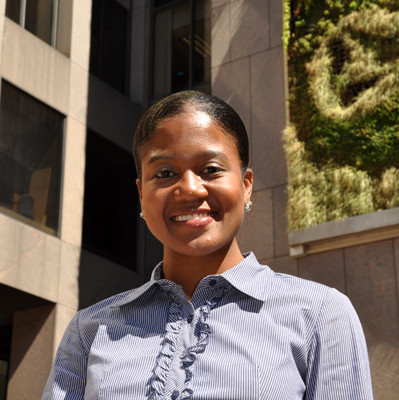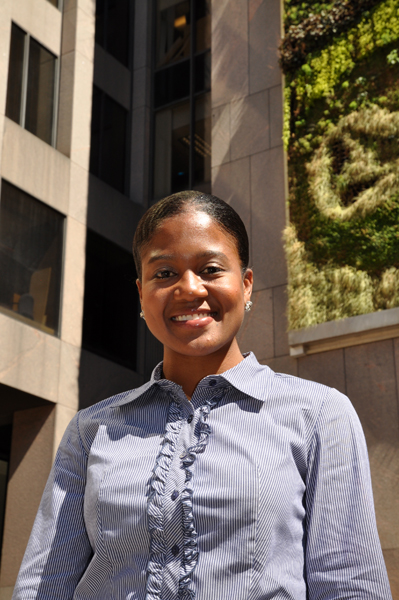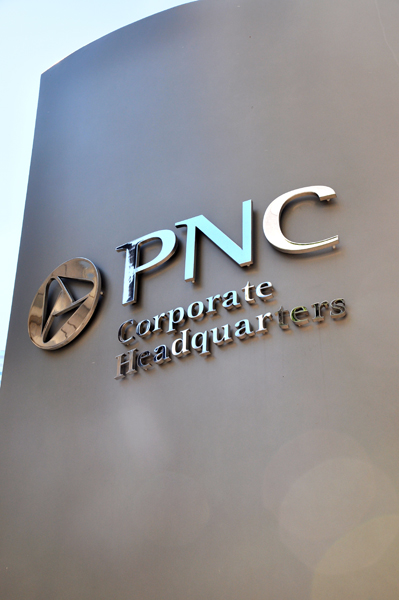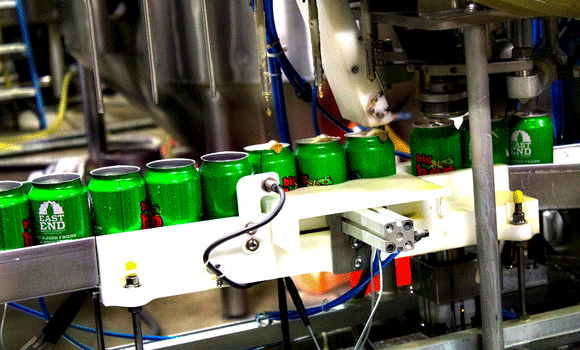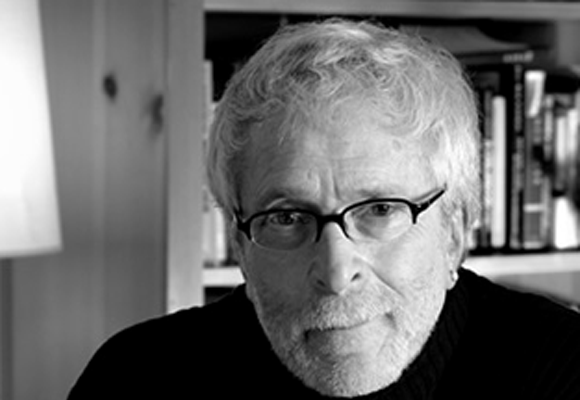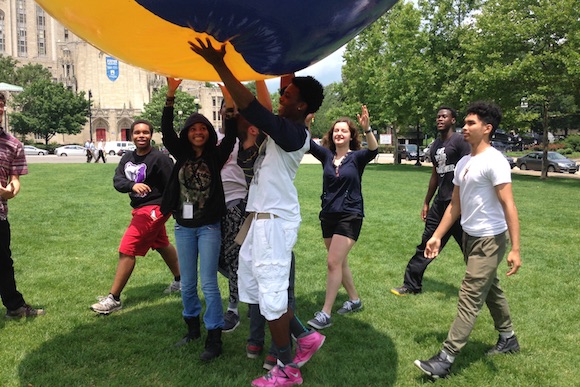With an MBA from Carnegie Mellon, Tuesday Tibbs had offers rolling in from financial institutions across the country. But the Baltimore, Md. native picked Pittsburgh and an offer from PNC Bank.
Tibbs, 25, is now a corporate banking analyst, providing local companies with financing and other banking services. It's a role she prepared for as an intern at PNC. Tibbs is one of many young people who found their way permanently to Pittsburgh through an internship. Not only do they engage in meaningful work, but they also engage in the community which is key to making them feel welcome.
PNC offers freshmen through senior college students a paid, 10-week “try out” in which they join one of the company's many lines of business, from communications to retail banking. Interns are paired with mentors, typically senior-level managers, and many also receive help from a so-called buddy, a worker who is a year or two out of school.
PNC recruits from around 60 campuses around the country, including local ones.
Tibbs first encountered PNC at a National Black MBA Conference held at Carnegie Mellon. “I was very excited to see that they supported diversity,” Tibbs says. She applied for the company's MBA internship program for the summer of 2008.
Meeting with a mentor weekly, Tibbs appreciates that senior managers not only taught and encouraged her, but challenged her.
“You didn't feel that they were too busy to talk to you or that they were just there out of obligation,” Tibbs says. “They were sincerely there because they wanted to meet the new talent coming into the bank.”
The intern program is the company's feeder pool to full-time hires, says Caitlin McLaughlin, PNC's director of talent acquisition. “You're not a guest here, and it's not just something to put on your resume. We want you to come here and do real, meaningful work and learn our business along the way.”
Many interns end up sticking with PNC, McLaughlin says. Around 70 percent of students are invited back the next year, including those continuing in the program and graduates hired full-time. “And while other companies have cut back, our internship programs have only gotten larger,” McLaughlin adds. The internship program in 2011 is 50 percent larger than it was in 2010 and the 2011 intern class has 360 students, up from 240 last year.
Other Pittsburgh-based companies attract young, talented professionals to the city. Heinz spokeswoman Tracey Parsons says that more than 75 students come to work, live and play in Pittsburgh each summer with the goal of eventually securing full-time employment.
“Interns are exposed to all the city has to offer, including tours of Downtown, kayaking excursions, Pirates games, tours of Heinz Field and a host of activities that show them first-hand why Pittsburgh and Heinz should be their top choice,” Parsons says. About 90 percent of interns who receive employment offers accept them.
Highmark's intern program is less than five years old, but all of those offered a full-time position with the health insurer have accepted, says spokeswoman Denise Hughes. “One point that is key is, once we get the interns, how do we retain them?” asks Hughes. “We do that by allowing the interns to experience a meaningful opportunity to contribute to the business.” That includes exposure to business and leadership development programs.
The Regional Internship Center of Southwestern PA, which aims to increase the number of local companies offering internships, has 426 out of state students registered on its site since 2009, says program manager Trisha Hyatt.
The RIC promotes the city through its Interns Summer Program, a series of social, professional and cultural events. Some of this year’s activities included karaoke night at the Shadow Lounge, a speed networking event at Alcoa headquarters and a Carnegie Museum of Art and Natural History tour.
“Most interns who partake in this program are not from the region and come from all over the country and world to intern in Pittsburgh for the summer,” Hyatt says. “By creating a social experience that highlights the city, we hope to encourage these interns to consider staying in or relocating to this area upon graduation.”
Tibbs is now helping new co-workers discover Pittsburgh. She is the co-president of PNC Recognizing Emerging Professionals (PREP), a group started in May to increase employee engagement among those who have been with the company less than five years.
“We try to make sure that people not only get professionally acclimated at PNC, but socially acclimated in Pittsburgh,” Tibbs says. “We make an effort to get people out and involved in the community, to let people know about all the cool social events that are going on.”
PREP's outings have included happy hours, Thai dinners and community service at a childhood learning center. The group attended Young Professionals Working Night at PNC Park, and they're signing up a team for the Pittsburgh Great Race. Tibbs is also planning kayaking and biking trips.
“Because PNC is such an awesome company, they're able to draw people into a city that they might not have otherwise considered,” says Tibbs, speaking like a true diplomat. “There's an incredible amount of opportunity, and people get a certain sense of loyalty to this city once they stay.”
The fact that PNC's headquarters are in Pittsburgh, ranked by Forbes and The Economist as the “most livable” city in the United States, played a major part in Tibbs' decision.
“This was a place that I felt I could call home because the cost of living was reasonable, the people are friendly and there are plenty of opportunities for new professionals,” Tibbs says. “I always feel like I'm stumbling upon a new restaurant or shop, even in my own Point Breeze neighborhood.”
Michael Chamas, a current PNC intern from Dearborn, Mi., who attends Michigan State University, agrees that Pittsburgh offers a mix of affordability, opportunity and recreation. “I chose to live in Shadyside and it’s been great,” Chamas says. “It’s a quick bus ride to work each day and there’s so much to do within walking distance.
Chamas learned about the city’s history on a downtown Segway tour, has acquired a taste for Pittsburgh’s ketchup laden, French fry-stuffed fare and golfs at least once a week at local courses.
“Initially, I wasn’t sure what to expect of Pittsburgh,” says Alesha Wilson, a current PNC intern attending Florida Agricultural and Mechanical University in Tallahassee, Fla. But the Bowie, Md. native has been pleasantly surprised.
“Because I’m living in the city, my morning commute is super easy – I walk to work,” Wilson says. “I’m a huge shopper, so I’ve been to the Waterfront, Waterworks, Shadyside’s Annual Sidewalk Sale, South Side Works…I’m trying to visit as many places as I can in this big city!”
“There is ample opportunity for young professionals in Pittsburgh, even in a competitive market,” says Rachel Marhevka, a former PNC intern who accepted a full-time position as a treasury management analyst. Marhevk grew up in Harrisburg and attended Pitt. “Over the past few years, I’ve come to appreciate more about Pittsburgh- the flavor of its culture. The pocket towns that comprise a greater city, like pieces of a quilt, each offer their own distinct character.”
Photographs of Tuesday Tibbs, Michael Chamas and PNC copyright Brian Cohen
